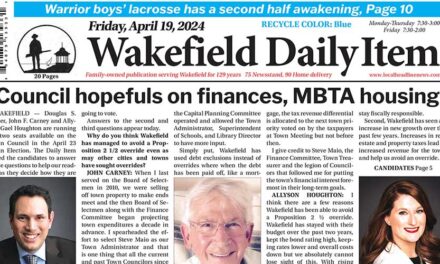By DAN TOMASELLO
LYNNFIELD — The Supreme Judicial Court has upheld a Land Court decision that allows the town to prohibit short-term rentals.
Then-Associate Justice Kimberly Budd recalled during a recent ruling that former resident Alexander Styller, who used to live at 8 Needham Rd., appealed a Land Court judge’s decision that stipulated the town was allowed to prohibit residents such as Styller from renting out their properties on websites such as Airbnb. Styller previously rented out his Needham Road home on 13 different occasions, one of which ended up being deadly.
Randolph resident Keivan Heath was shot and killed at a house party at the home over Memorial Day weekend in 2016. Police found Heath, a father of two children, suffering from multiple gunshot wounds after arriving at the scene. Heath was pronounced dead at Union Hospital.
Five years after Heath’s murder, there have been no arrests made in the case.
After the shooting, retired Building Inspector Jack Roberto issued a cease and desist order to Styller that sought to prevent the former resident from renting out his property in because he was violating the Zoning Bylaw. The bylaw prohibits rentals classified as a hotel, lodging or rooming house in residential zoning districts.
Prior to the May 2016 murder, the town was unaware Styller was renting out his old house. After the ZBA rejected Styller’s appeal of Roberto’s decision and Town Meeting approved a Zoning Bylaw that banned short-term rentals in October 2016, he subsequently filed a lawsuit in Land Court against Roberto, ZBA member John Fallon, and former ZBA members Brian Shaffer, Tom Aylward, Janis Markakis and Patrick Rondeau.
Land Court Judge Keith C. Long upheld the ZBA’s decision in September 2018. Styller appealed the Land Court’s ruling to the Supreme Judicial Court.
In a recent ruling, Justice Budd stated that Styller “contends that use of his family home for short-term rentals constituted a prior nonconforming use that is exempt from a Zoning Bylaw of the town of Lynnfield that, as amended in 2016, expressly prohibits such rentals in single residence zoning districts.”
“(Styller) asks this court to overturn the Land Court judge’s decision and rule that short-term rentals were permissible prior to the bylaw amendments,” Budd wrote in the decision. “We decline to do so.”
While Budd noted that Styller still lived in town during the Land Court trial, she recalled that he sold the 8 Needham Rd. home while waiting for the Land Court to make a decision.
“There is no doubt that a right of action challenging the legality of the property’s prior use as a short-term rental survives the sale of the property,” Budd stated. “Regardless of the strength of the plantiff’s continuing personal interest in the case, we view the viability of short-term rental use of property in the context of existing zoning regulations as one of public importance, in the same sense that it raises an important public question whose resolution will affect more persons than the parties to the case.”
Budd also stated that the Supreme Judicial Court did not believe Styller’s argument that he was allowed to rent out 8 Needham Rd. because it “constituted a permissible use.”
“The plantiff’s argument is fundamentally flawed because it fails to recognize that short-term rental use of a one family home is inconsistent with the zoning purpose of the single-residence zoning district in which it is situated,” Budd wrote.
In conclusion, Budd stated that Styller’s decision to rent out 8 Needham Rd. “was not a permissible use under the town’s Zoning Bylaw as it existed prior to its amendment in 2016.” As a result, the Supreme Judicial Court upheld the Land Court’s decision.
Town Counsel Tom Mullen told the Villager in an email that he was pleased with the SJC’s decision.
“I am happy with the result not just because it upholds the decision of our ZBA, but also because it makes the important point that short-term rental use of single family homes imposes uniquely onerous impacts on a neighborhood and therefore cannot be deemed an as-of-right use in residential districts,” said Mullen.
The Supreme Judicial Court also recently ruled that Styller was not negligent in Heath’s murder after the late man’s mother, Sharon Heath-Latson, filed a lawsuit against him and six other men. The court concluded that Styller was not negligent because it was a third party who murdered Heath on May 29, 2016 while Styller was staying elsewhere.




